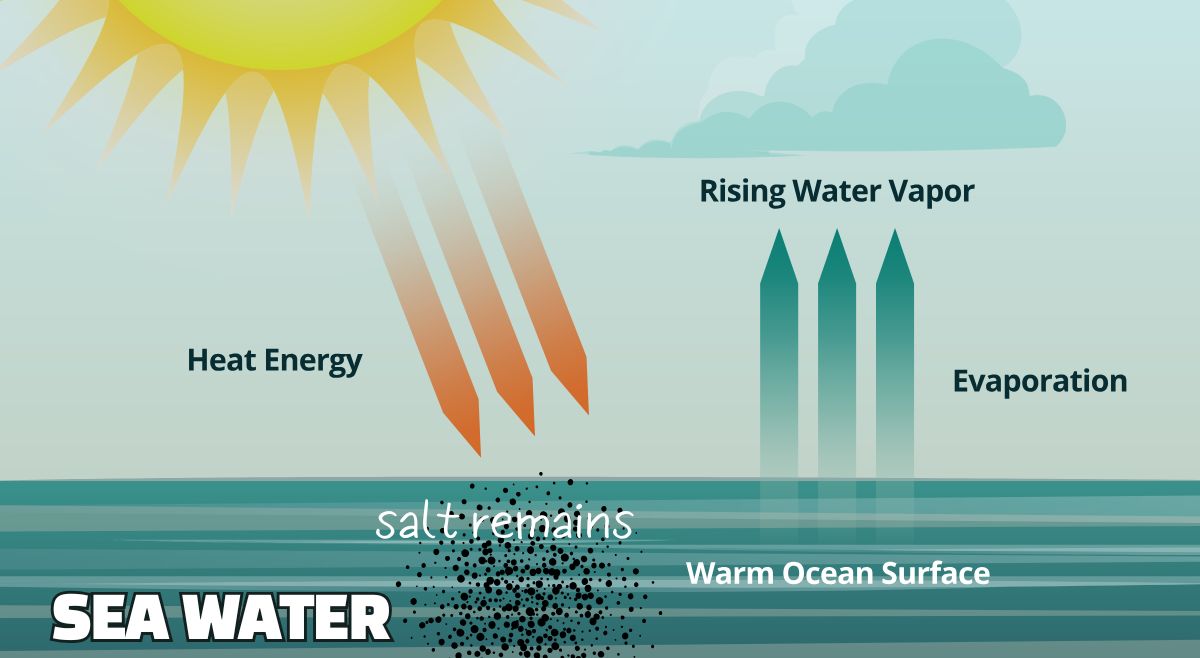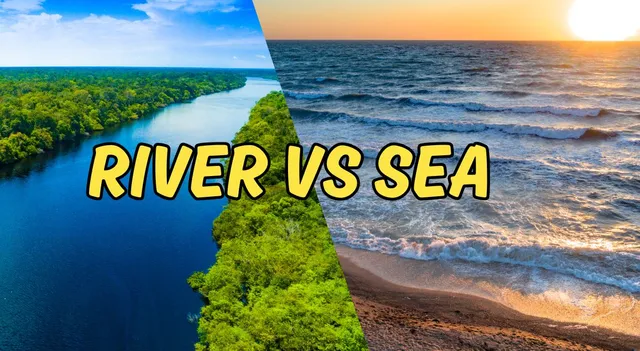- By Ridam Sharma
- Sat, 26 Jul 2025 03:29 PM (IST)
- Source:JND
Why are oceans salty? Nature is full of fascinating facts and has its unique ways of working. For example, you might have wondered why seawater is salty but river water is not. However, with time, science has evolved and has found logical reasoning for the occurrence of most of these fascinating phenomena. The river and the sea are both natural sources of water, and both play vital roles in the environment. However, with different significant objectives. Rivers are freshwater flows towards larger bodies of water. On the other hand, seawater is a saltwater that is mostly connected to oceans. Let’s take a closer look at why both water bodies are not salty.
Rivers are primarily fresh sources of water, and the main reason behind it is rain, which is naturally fresh and slightly acidic. This rainwater flows over rocks and soil, which dissolve a small amount of salt minerals like sodium and chloride in the river. However, because river water is always flowing and moving downstream, it does not allow salts to accumulate in it, as the tiny bits of salt get carried along with the water and don’t stay in one place. And this is the prime reason why river water has a low content of salt, since rivers carry all the little bits of salt and minerals they pick up from the land and pour them into the sea. Also, rain and springs constantly dilute river water, making sure rivers remain fresh and do not accumulate salt.
On the other hand, oceans collect all the salts and minerals delivered by the rivers but lack an outlet, unlike rivers. The most important difference is what happens to the water after reaching to ocean. There, the sun heats ocean water and evaporates only the water molecules, leaving the salt behind because the salt is too dense to evaporate. Evaporation leads to an accumulation of the salts in the ocean over a long period of time, increasing the ocean's salt volume. Rivers lose the salts because when water evaporates, fresh water only escapes, depositing dissolved salts and minerals into ocean water.

However, there are some more factors that add to the salty nature of the ocean. Like, underwater volcanic eruptions release minerals and salts into the ocean. Additionally, Rocks on the ocean floor also dissolve minerals into the seawater because of the constant motion of waves and currents churning up the ocean's bottom. These sources also add to the salt in the ocean, making it salty over geological time.
Also Read: World Water Day 2025: Top 10 Cleanest Rivers In The World
The surprising fact is that certain lakes are salty as well, particularly those without outlets, known as endorheic lakes. These lakes' water evaporates, but salts get left behind and accumulate as time passes. This is why lakes like the Dead Sea or Great Salt Lake are extremely salty, as opposed to flowing rivers that drain their salts into the ocean.
In short, the river water is largely fresh since it flows continuously, diluting and exporting salts. On the other hand, the water in the oceans is salty due to the accumulation of salts from rivers and other sources without drainage. Additionally, the evaporation of seawater leaves salt behind, causing it to be highly concentrated in the sea. Volcanic and geological activities beneath the sea also add salts to the oceans.

